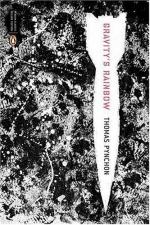|
This section contains 378 words (approx. 2 pages at 300 words per page) |

|
Pynchon sets this huge novel in the midst of the most obvious mad scene of the twentieth century, World War II, but his intent is less overt than that of most novelists who use this background. From the rationalist perspective, all war is a consequence of a breakdown in reason, and World War II, the greatest slaughter in history, the worst case yet of such a collapse, is a warning for future generations. From the moralist perspective, World War II may be considered a victory of the forces of light against the forces of darkness, the popular democracies which believe in the dignity and freedom of the individual (with the perplexing exception of the Soviet Union, of course) against the robotic, enslaving fascist nightmare.
To Pynchon, such views of the conflict are sophomoric. World War II is neither a collapse nor a triumph but just the...
|
This section contains 378 words (approx. 2 pages at 300 words per page) |

|




